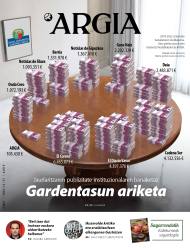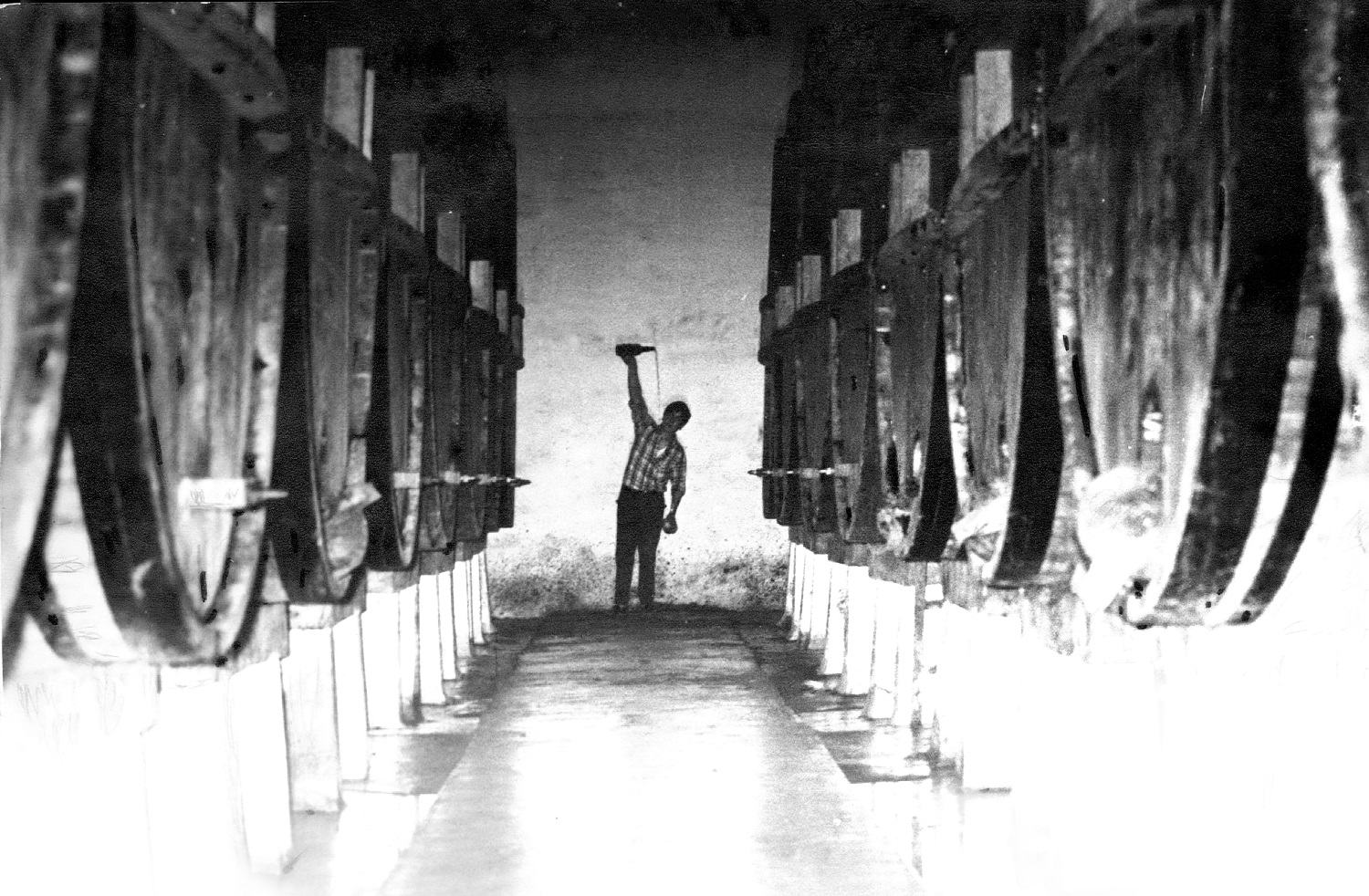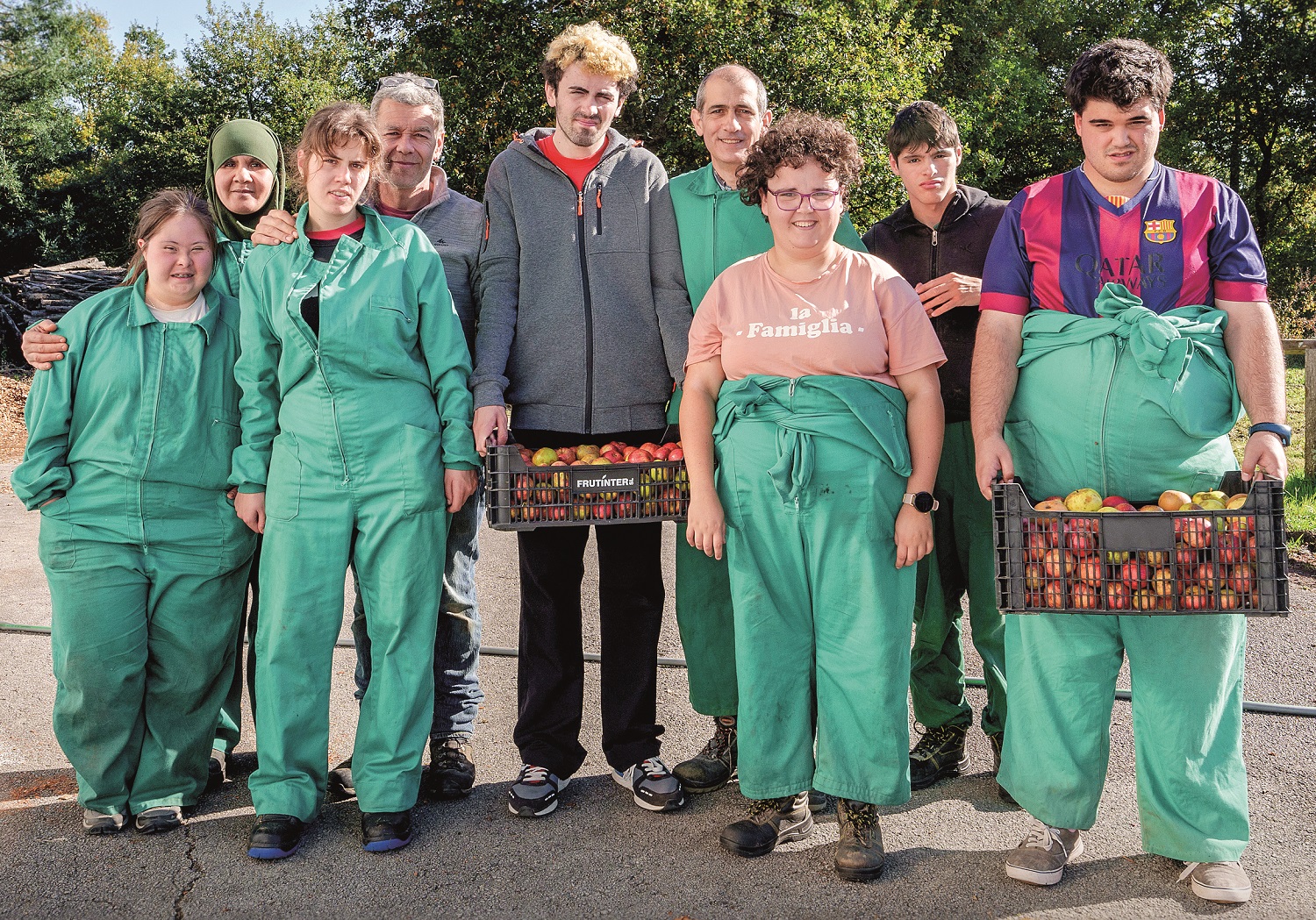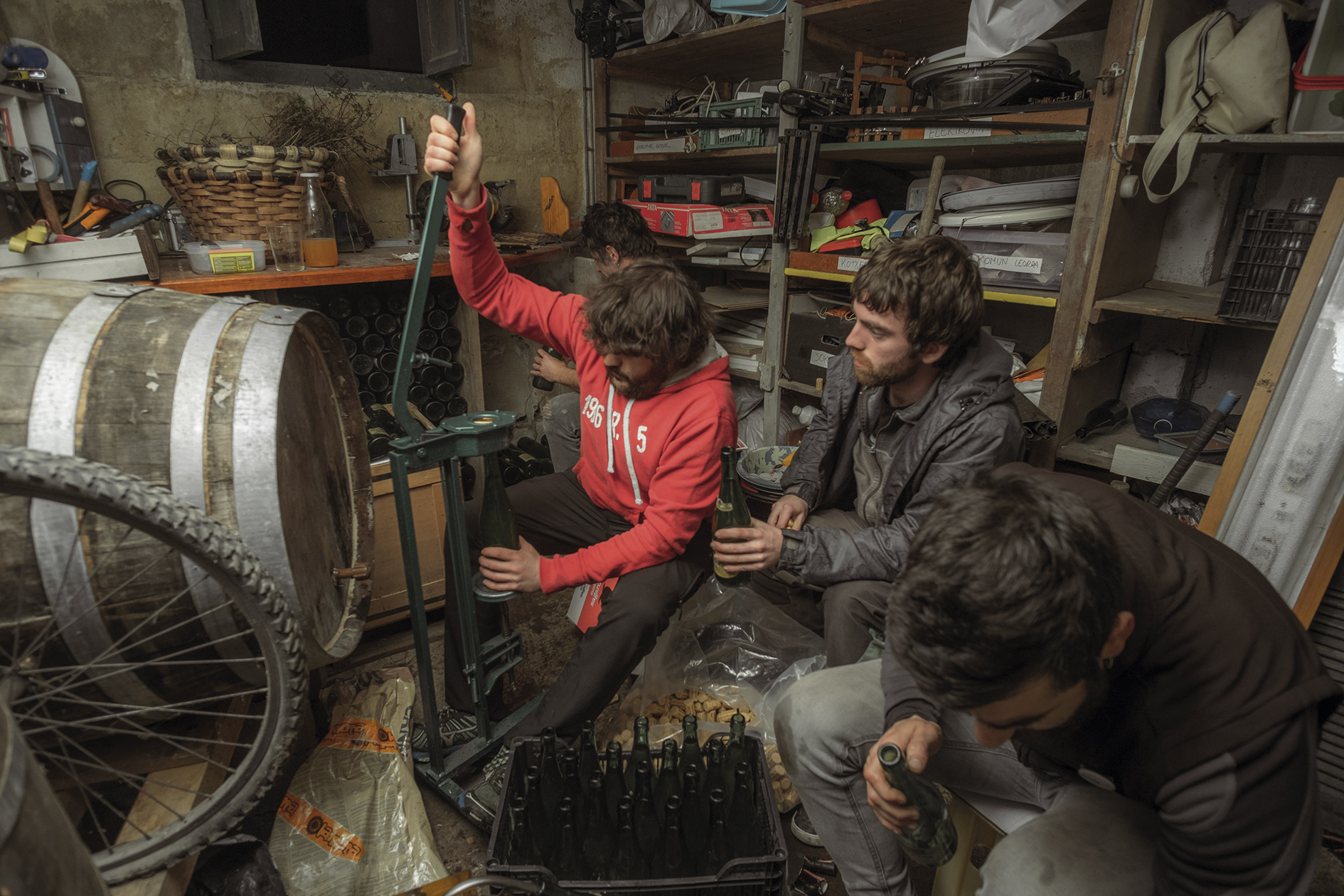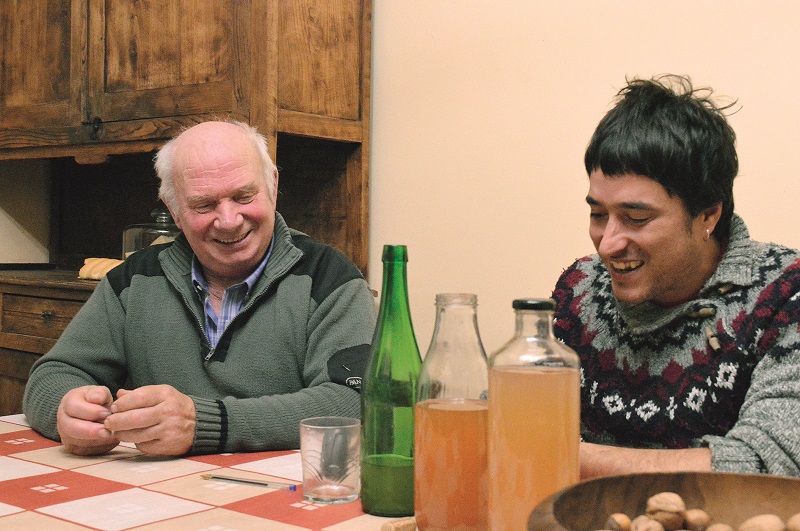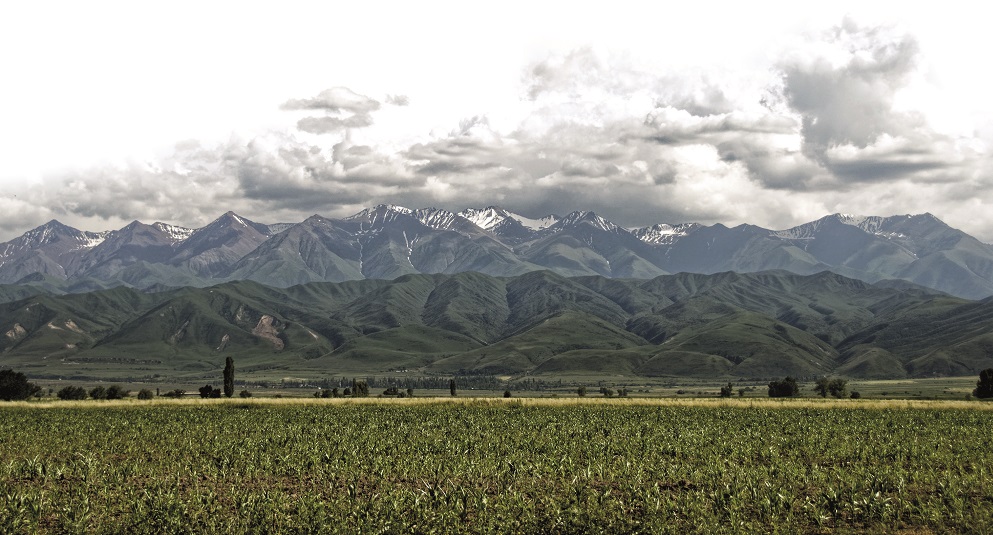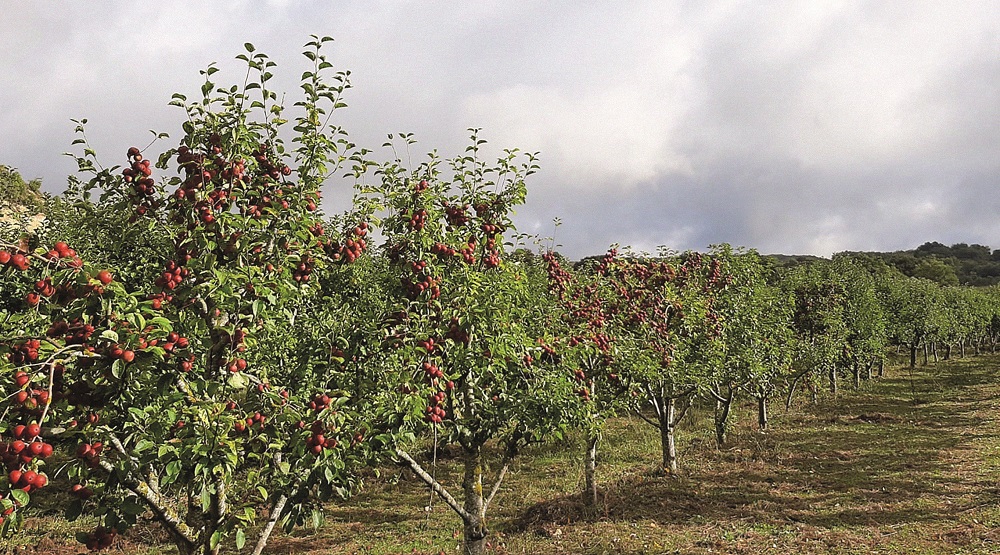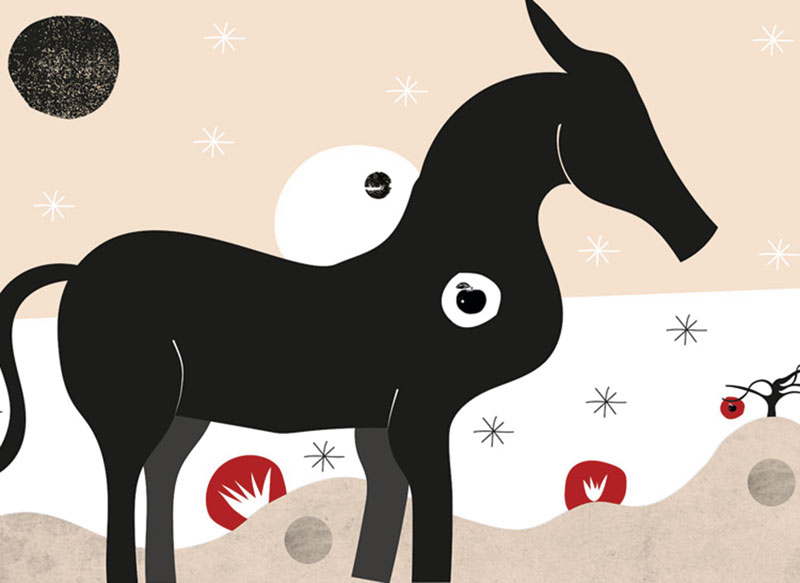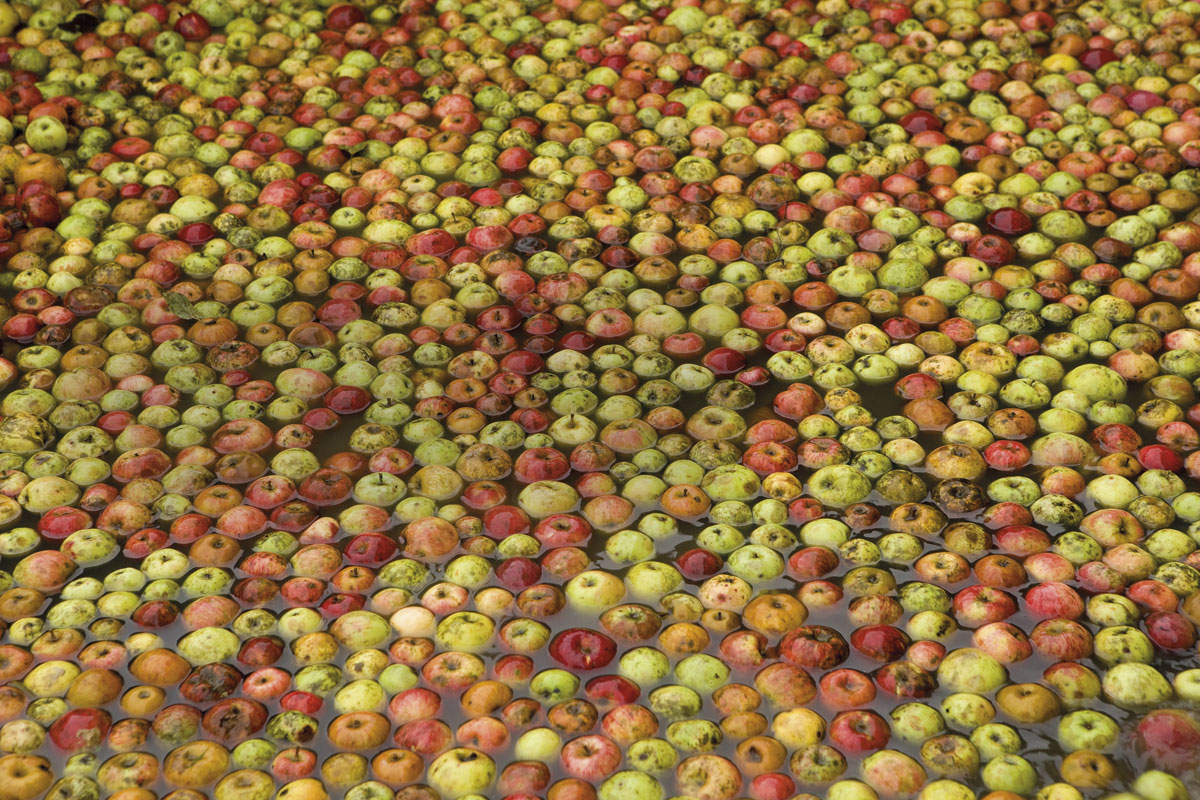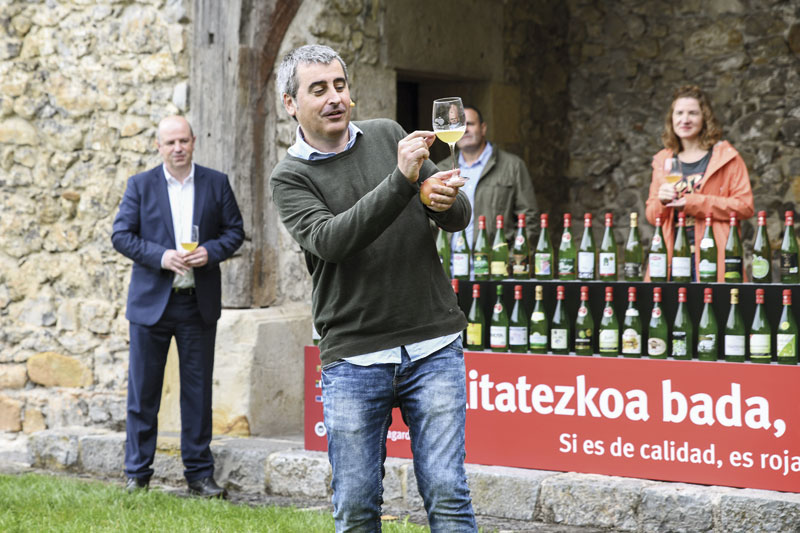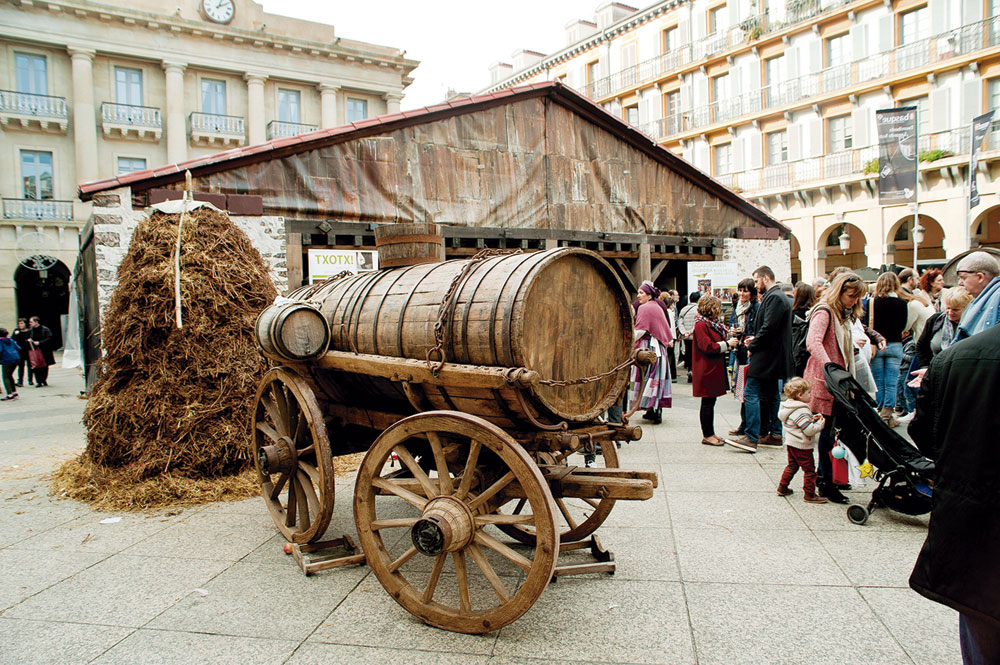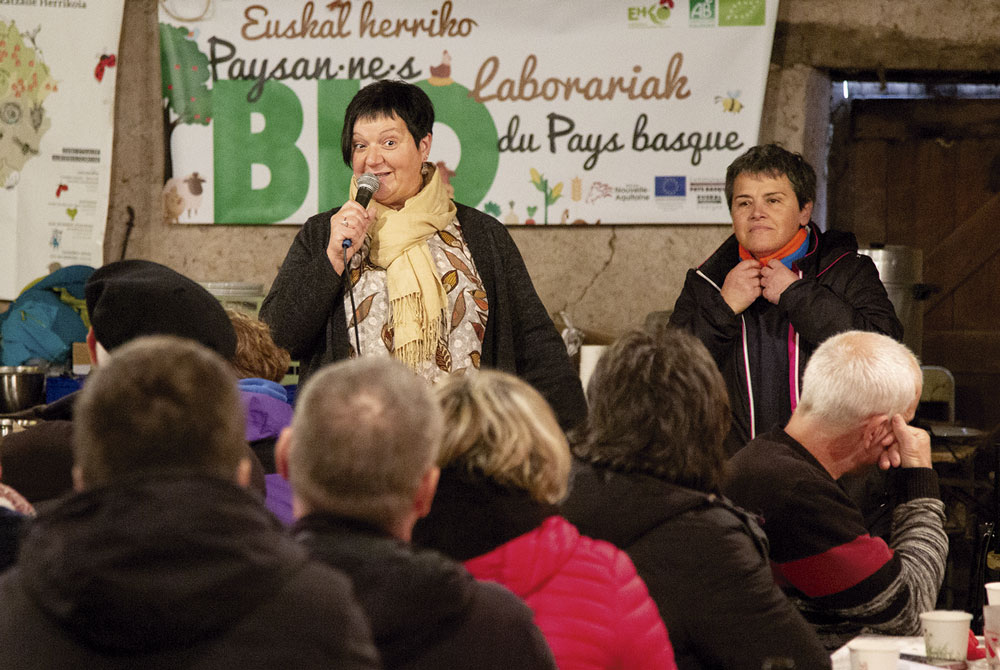Occupation of apples for revitalization
- Between seven and eight trans and shin girls who were not born but live near San Sebastian form the “expropriated” production group Sagarrondu. Almost all of them are back at 25-30 years old, street, but land-related; some have worked professionally in the primary sector, have had orchards, animals... As for the plot that they occupied eight years ago in Asteasu (Gipuzkoa), we have been told that they are not the only ones who have taken the step, as there are more people working to revitalize the abandoned land.
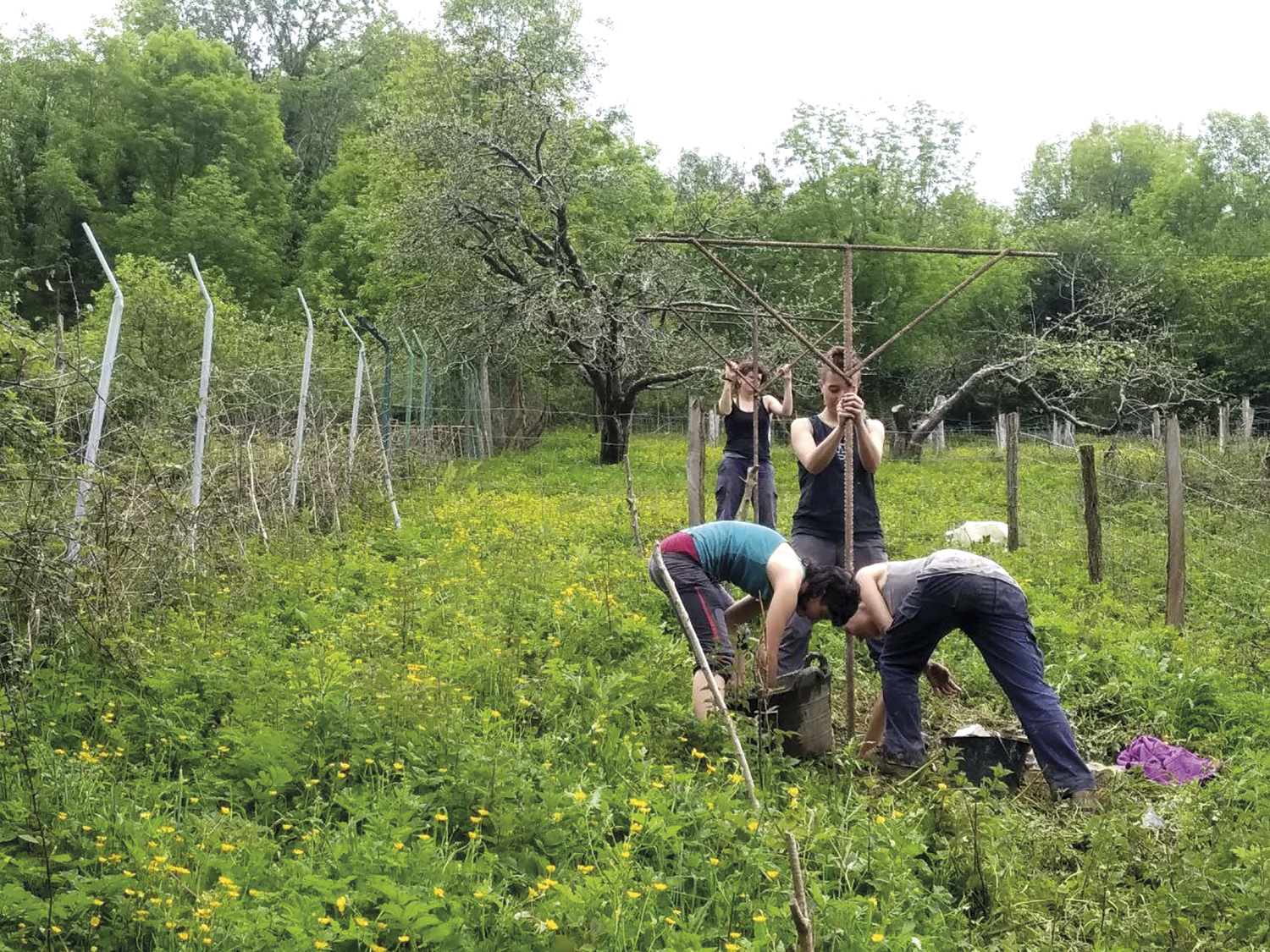
In the Asteasu estate there were about twenty fully abandoned apples, which could hardly be seen between the brawls. In 2015, a conference was held in Ziordia (Navarra) to return to community autonomy in which the project began to materialize. Some of the participants knew the Asteasu estate, so they had to start.
“We did a great job in clearing the ground, we took off braces and we could trees,” two members of the collective told us, who do not want to be told. It is said that the objective of apples collection is greater or lesser, especially the collective regeneration of the soil. “With our apples we don’t meet the needs, so we try to meet in other places by consulting in the villages around us. We've been to Aia, Igeldo, Anoeta, Hernani, Eratsun... According to the year they give us more or less apples, according to the amount that spare them”.
In exchange for picking up apples, they'll take care of those grounds, they'll give away cider bottles, they'll collaborate in the neighborhood work. “We want to discuss the legitimacy of private property, there are cases in which in exchange for apples we are asked for something very concrete, but for us that would be like entering a rental,” they tell us. “However, we have not reached a consensual and unique position on this issue, which provokes a debate among us.” They tell us that, despite being people of different profiles, they have managed to trust the baserritars. “Some are too old to take care of the fields and dedicate themselves to the collection of apples, their children have not resisted the work of the farmhouse and are glad to see that their land remains profitable for some because of their special relationship with the farmhouse.”
Uncertainty
Caring for the Earth creates a special bond, is a source of joy, but it can also cause frustration. “It takes a lot of work and the outcome is not always immediate or expected.” Aware that this is an activity in which the long-term fruits are collected, the uncertainties involved in the occupation, such as the sale of the Asteasu plot, go to the surface. When they occupied the land they knew it was for sale, but “the price was so high,” it was almost impossible for someone to buy it. But last time, the members of the Sagarrondu worked hard to fix everything and about two years ago the sale price of the estate was down. “When we saw that the seller has published new photos after ordering them, and that it has also lowered the price… it caused us a certain blockade. Just in case we haven’t planted more trees, because it asks for money and jobs, and because we don’t know what the future holds.”
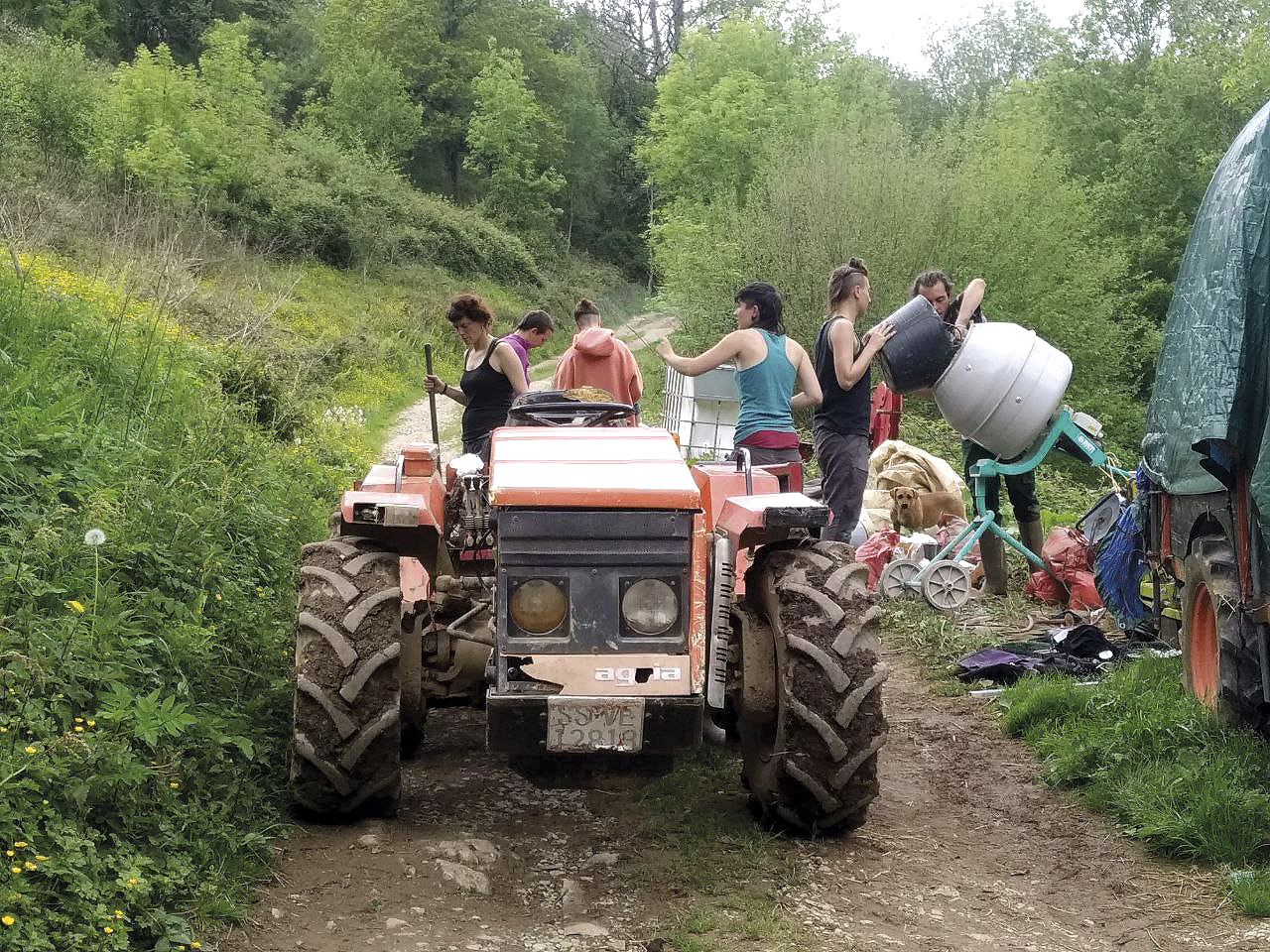
We have been told that occupation is a “good opportunity” for others that cannot be easily achieved, but that there are limitations. “Occupation is also a political option, against private property and, in particular, in relation to the rural environment, to revitalize the land that is still not used. We have been arguing for some time about whether we should try to obtain transfers from other plots, but we have not reached full agreement on this issue.”
Beyond market logic
Gradually, the necessary infrastructure for the production of cider and apple juice has been obtained. Tolare, for example, until recently was allowed to be used in a hamlet in Aia, but they already have their own, shared with a farmer neighboring Asteasu, who have him in a corner of his estate, along with the breakdown. “The neighbor has offered us a lot of help, left us a tractor, allowed us to keep some things in their house...”
On the other hand, the bottles have been collecting through contacts, asking in the bars. And the 500 liter steel barracks have achieved this through a friend. They have it in their Lasarte house and the bottles too. They use cider to consume, in return, to offer it in post-work snacks or to give it to groups that want to raise some money by drawing. “We do not come from the countryside, but from other movements, occupation, transfeminism... We have a network back to production, and when we make auzolans, we drink our cider and juice. More than satisfying a need is to offer something to people, it’s nice.” They have sometimes talked about the possibility of selling cider in order to finance at least the project, but, although they have not completely ignored the idea, entering this market logic produces a slight itch among their members. “We don’t work for that,” they say.
Aware that we are talking about an activity in which long-term fruits are concentrated, the uncertainty involved in occupation in many cases goes to the surface.
They have cork, juice pasteurizer (in the house of the neighbor), densimeter... On 20 November the cider was bottled (juice before) and now you have to wait a bit to drink. “It does not harm us to wait until August; in May we have opened the bottles and there are still missing points”. Cider was not produced last year, and this year they have taken more account of the type of apple used, both for cider and juice, given that they cannot always take advantage of them. “Our land is big but slow.”
Implemented in vedits
“Some Earth-related jobs can be stressful, desperate, but they’re very nice places to build relationships,” Manzano members tell us. They are pleased to see that the effort made has produced results. “As women, as walkers and trans, we have contributed a lot as a group that we are able to work in those fields that have been forbidden to us: construction of machinery, strength, tolare, chabola, climb of slope of the sac in the neck, outbreak on the tree, chainsaw and flattening... We want to cider, in this sense we have a productivist vision, but for us it is very important to learn how to use the chainsaw, for example”.
The apple tree, in fact, is not a group or mixed, without heterogeneous cis men, but with the exception of its beginnings, they have been and are working on the trans, women and pastries project. “This helps a lot because we have the view that feminism and transfeminism give, for example, of roles. Surely in our auzolans it is not necessary to work things that should be worked on in other areas, such as power relations from the point of view of gender. When some guys want to participate in the Auzolans, you have to be a minority and know where they are, to realize that we're going to set the pace. It's an interesting exercise for men to learn to put themselves in the background. It’s true that we’ve measured the men around us [laughs].”
.jpg)
Although it is a collective of its own nature, we must work on the roles: “Not individually but collectively, yes, we have worked hard to take on other roles, like learning how to handle tools. Some may have more courage than others. A job has been done there, but it does not mean that there are no roles between us. There are people who are engaged in coordination, they are elected roles, but there are people who have taken some instruments and others not, that is not the chosen role, not even that the rest are collecting branches while some are sprouting, or that logistics always delight in one person ... We think we do it well, but those things have to be taken care of.”
Organization adapted to care
Asked about the time they spend on apples, they have explained that in these years it has been decreasing, as they measure better what needs to be done. They worked when they occupied the land, even when they planted some trees – kiwi, pears and nogales – shortly before the pandemic. For the rest, it is around September that we begin to manufacture cider and apple juice, because we have to collect apples and clean utensils and bottles, among others. “We appeal to neighborhood work and help us in the cited production network. On the other hand, our lives are not built around employment, and in that sense we are rather unstable. For example, some years have been some members of the group picking up the grapes, and you have to adapt it to that, each one will give whatever they can.” However, they also have rules. For example, if someone cannot cover their shift, they undertake to look for a substitute. In collective initiatives such as apples, at the time dedicated to production, we must add what the management of the group requires: meeting, discussing, making decisions ...
They're learning little by little. “We attach increasing importance to the process and to the material. We clean it carefully, taking care of it as best as possible. We don't want the cider to rot and pour, as we did at the beginning. We know it happens to a lot of people, but you've done a huge job and you've spent money." However, failures are also positive. At the time when the cider was misplaced, vinegar was made. “We didn’t do it intentionally, but listen, it was a good vinegar, with many properties. Stop cider when you wait with 80 liters of vinegar... [laughter]."









